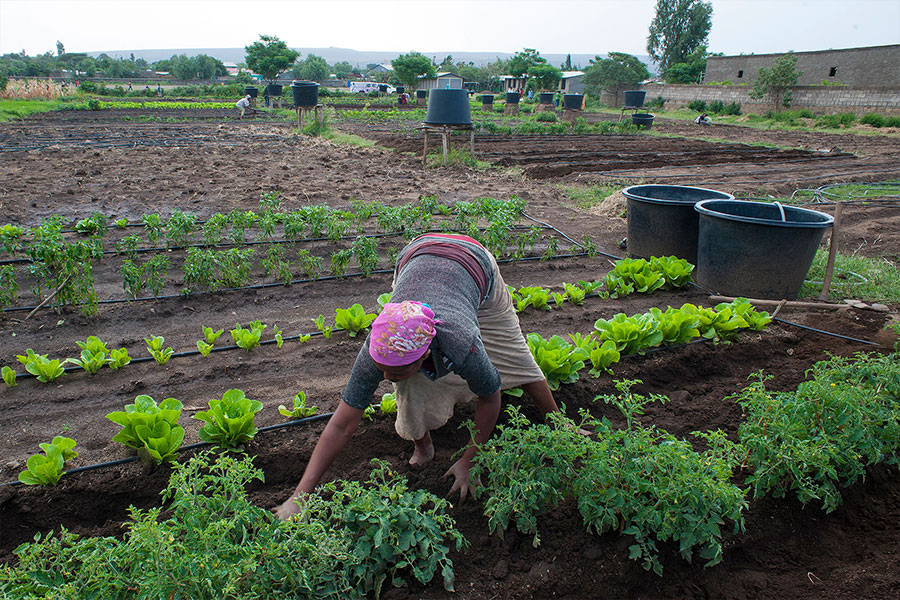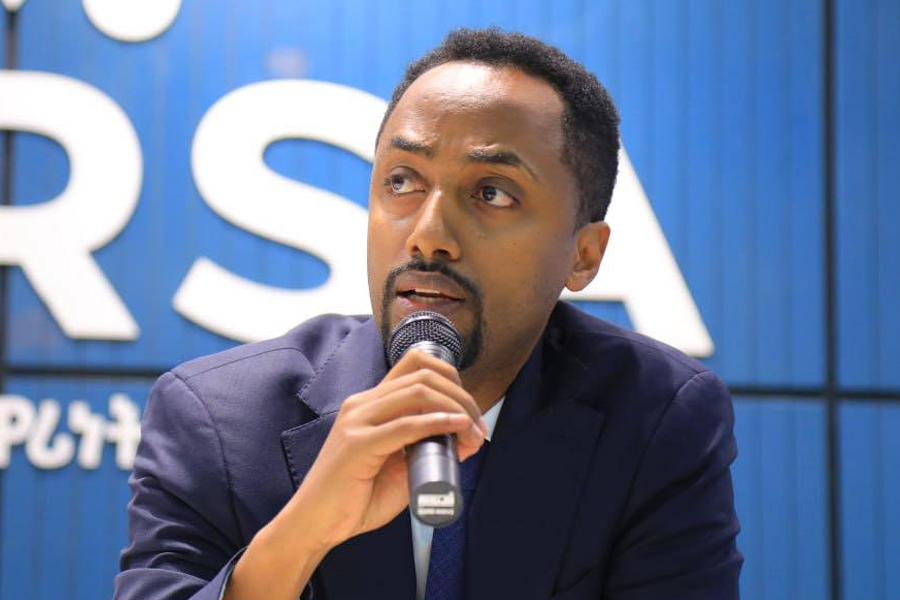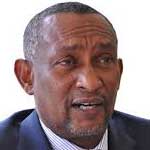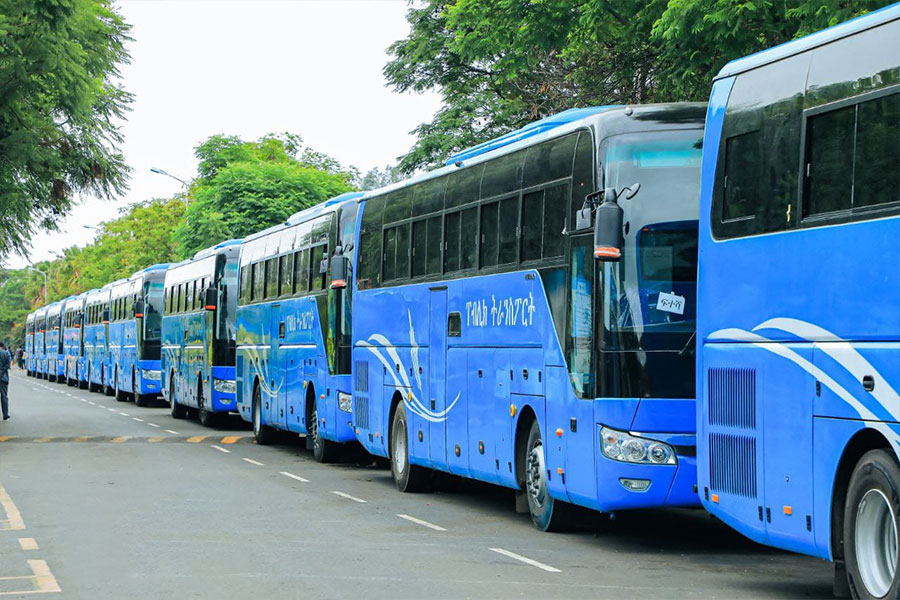
Radar | Aug 24,2019
Sep 16 , 2023
By BERSABEH GEBRE ( FORTUNE STAFF WRITER )
The audacious initiative to produce millions of pre-inscribed ID cards for the National ID program is met with contention as the Indian-based company declared its triumph amid a complaint lodged by a local enterprise that entered the closed bid in a consortium.
It was floated at the end of May, requesting dozens of international and local companies to participate.
Sources close to the matter disclosed to Fortune that bidders were notified that Madras Security Printers Plc had been selected for the contract, which is worth 16.4 million Br last month. However, an objection from one of the other contenders, NeuroNet Plc, alleged irregularities in the bidding process, prompted the team to address the grievances.
The local tech company NeuroNet Plc was competing jointly with MK Smart Digital Security to handle the printing and delivery of ID cards offering 420,000 dollars.
According to sources, the complaint hovers around the local currency payment modality put forth by the winner while they entered the bid with foreign currency in joint ventures with international companies.
The procurement is part of the Ethiopian Digital Foundation project under the Ministry Of Innovation & Technology rolled out in April 2021. It is financed by the World Bank with 200 million dollars.
Officials at the Project Office averred that they had assuaged the grievances of the bidders while remaining steadfast in their conviction that they had selected the most cost-effective option despite the type of currency used.
"The payment modality was unrestricted," said Tessema Geda, a project manager at the Foundation.
Founded by six bankers with 30 million Br paid up capital, Premier Switch Solution S.C. responded to the bid on behalf of Giesecke+Devrient a.k.a. G+D, a German-based company that provides bank noted and securities printing, smart card and cash handling systems.
They proposed to take on the project with 650,000 dollars and 15.6 million Br while the CEO Yosef Kibert observed the competitor's price was far from his expectation.
"We've entered after a comprehensive assessment of international pricing," said Yosef with disbelief.
Under Yodahe Araya, the National ID Project Office overseen by the Prime Minister's Office has registered 3.1 million residents since its launch. During its six-month trial phase, it has managed to register 100,000 citizens partnering with institutions and expects to reach 90 million residents by 2025.
Parliamentarians then legislated the Digital ID Proclamation with a majority vote at the end of March. However, the program has been hampered by a misconception about what constitutes a "Digital ID." According to Abenezer Feleke, head of communications at the Project Office, most residents are accustomed to having a hard copy of their ID and expect to receive one.
Unprecedented demand for printed copies has surged, leaving the project at the mercy of private printing companies while they prioritised serving "VIP customers" such as high-ranking officials and ministers with their institutional capacity.
"We can't meet the print demand for all residents," said Abenezer.
Financial institutions are at the forefront of this initiative with the Ethiopian Bankers Association gearing up to procure registration kits apportioning two billion Birr.
Although the bankers serve as a focal point for registration, a clear directive from the central bank is pivotal to make it compulsory for financial services, according to Abenezer.
The Project Office plans to expand its reach beyond financial institutions and revenue bureaus, integrating with the Immigration & Citizenship Services and the Civil Registration & Residency Service. It was connected with public services, education and health sectors within the last couple of weeks.
Officials hope the integration of unique primary identification will enable national health insurance schemes, professional licensing and avail records.
Although the Office aspires to go fully digital, it has not shrugged off printing modality for the residents applying.
The Cooperative Bank of Oromia (COOP) is one of six banks that availed registration through its five branches. Tolosa Shula, marketing & communication head, said they chose to explain how the service works with a mere number instead of indicating that a print version is available through the Telebirr platform.
Giving in to the demand does not fly off for the expert Endashaw Tesfaye who previously served as deputy CEO of M-Birr.
While he acknowledges the lack of awareness to provide all public services using a mere security number, less costly methods should serve as an alternative indicating that the price is not feasible for a large population.
Endeshaw argues creating awareness towards digitisation should come as a priority rather than costly attempts that take the Project Office further away from its aim of consolidating multiple accounts under one unique number.
"This defies its own purpose," he told Fortune.
PUBLISHED ON
Sep 16,2023 [ VOL
24 , NO
1220]

Radar | Aug 24,2019

Fortune News | Dec 25,2021

View From Arada | Mar 02,2019

Fortune News | Apr 08,2023

Radar | Oct 12,2024

Verbatim | Oct 31,2020

Fortune News | Aug 13,2022

Fortune News | Mar 06,2021

My Opinion | Aug 08,2020

Radar | Sep 17,2022

Dec 22 , 2024 . By TIZITA SHEWAFERAW
Charged with transforming colossal state-owned enterprises into modern and competitiv...

Aug 18 , 2024 . By AKSAH ITALO
Although predictable Yonas Zerihun's job in the ride-hailing service is not immune to...

Jul 28 , 2024 . By TIZITA SHEWAFERAW
Unhabitual, perhaps too many, Samuel Gebreyohannes, 38, used to occasionally enjoy a couple of beers at breakfast. However, he recently swit...

Jul 13 , 2024 . By AKSAH ITALO
Investors who rely on tractors, trucks, and field vehicles for commuting, transporting commodities, and f...

Oct 18 , 2025
The political establishment, notably the ruling party and its top brass, has become p...

Oct 11 , 2025
Ladislas Farago, a roving Associated Press (AP) correspondent, arrived in Ethiopia in...

Oct 4 , 2025
Eyob Tekalegn (PhD) had been in the Governor's chair for only weeks when, on Septembe...

Sep 27 , 2025
Four years into an experiment with “shock therapy” in education, the national moo...